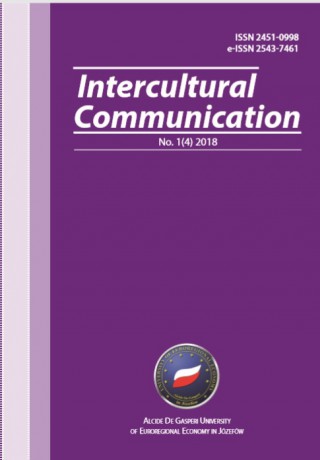Віртуальні лабораторії як інноваційні освітні технології у ВНЗ
Virtual Laboratories as Innovative Educational Technologies in Higher Educational Institutions
Author(s): Olena Fendo, Sergiy PudchenkoSubject(s): Education, Library and Information Science
Published by: Wydawnictwo Akademii Nauk Stosowanych WSGE im. A. De Gasperi w Józefowie
Keywords: virtual laboratories; educational technologies; innovative technologies; informatization of education; distance learning
Summary/Abstract: The article deals with innovative educational technologies in higher educational institutions, in particular, the use of virtual laboratories in teaching of natural and mathematical disciplines. Informatization of education, which is observed in the twenty-first century, is an integral part of informatization of society, it necessitates introduction of modern educational technologies into educational process. Thanks to these technologies, it has now been possible to provide distance learning not only to students of one university, but also to territorially separated educational institutions. In addition, innovative educational technologies allow establishing intercultural communication between scientific and pedagogical workers from different countries and nationalities, which seems a perspective field and requires further research.Purpose. The purpose of the article is to substantiate the expediency of using innovative educational technologies in teaching natural and mathematical disciplines by introducing virtual laboratories into educational process.Methods. The terminological method used in the article's writing involves clarifying definitions such as "innovation", "innovation technologies", "virtual laboratories", which allows comparing and deeper understanding of the interpretation of these concepts. The empirical method (experiment) has been used during the testing of virtual laboratories among university students, to confirm the effectiveness of their implementation in distance learning. Through the method of statistical processing one can analyze and compare the number of participants in distance learning and the quality of learning the material.Results. Global informatization of society requires introduction of educational technologies based on new methodological principles, modern didactic principles in the educational process as well as reconsideration of established psychological and pedagogical values. The use of virtual laboratories as virtual learning environment, along with traditional laboratories, will significantly improve the quality of learning, get the student audience interested in computer simulation of various physical processes and provide opportunity for independent study of the material through virtual experiments. Using the Internet and special software virtual laboratories will allow students to perform distance laboratory work, analyze the obtained results independently, compile reports, and then compare them with the data of real experiments. The introduction of virtual laboratories in the educational process is intended to facilitate the intensification of students' research activities, to interest them in computer simulation of physical processes, which will inevitably contribute to more effective study of the disciplines.
Journal: Intercultural Communication
- Issue Year: 2/2018
- Issue No: 5
- Page Range: 175-190
- Page Count: 16
- Language: Ukrainian

